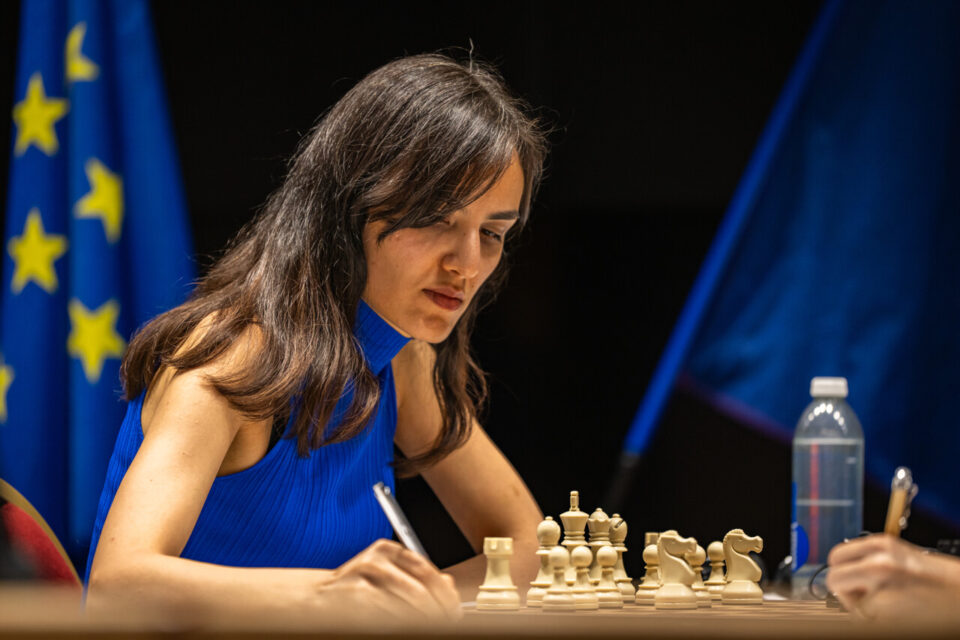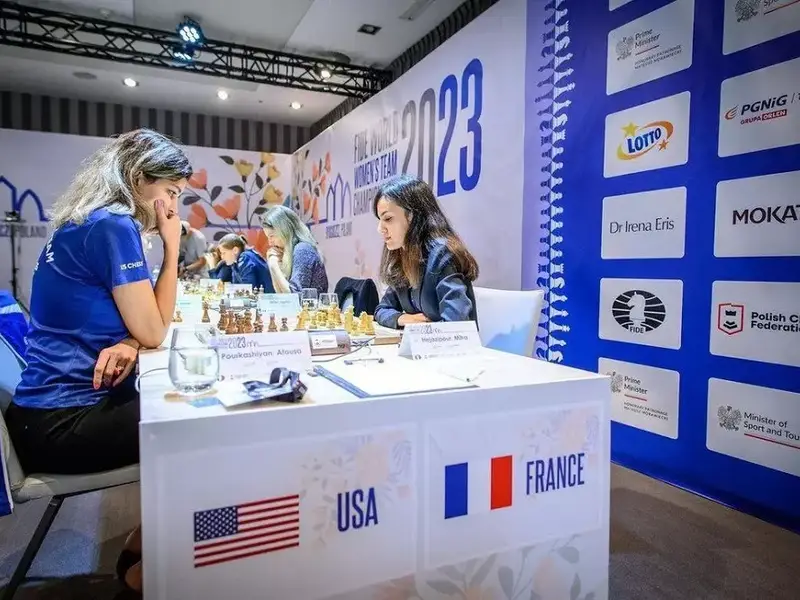Iranian GMs Hejazipour and Pourkashiyan in Exile: A Tale of Strength and Resilience
October 6, 2023
It’s been half a decade since Arkady Dvorkovich was chosen as the leader of FIDE, the global governing body for chess. His election in 2018 in Batumi, Georgia, marked the beginning of a new era for the International Chess Federation. He was re-elected in 2022 in Chennai, India, succeeding the long-standing president, Kirsan Ilyumzhinov.

Mitra Hejazipour was crowned French chess champion on August 27, 2023 at Alpe d’Huez (actu.fr)
The bittersweet face-off was emblematic of the challenges that Iranian women chess players face. Mitra remarked on the mixed feelings of the moment, both proud of their accomplishments abroad and yet deeply saddened by the fact they couldn’t represent their homeland, Iran.
The diaspora of Iranian female grandmasters points to a broader issue at play. A staggering number of Iran’s female chess talents have chosen to relocate, many due to the nation’s mandate on wearing the headscarf, which they found oppressive. Sara Khadem and Dorsa Derakhshani are but a few who’ve made headlines for defying this mandate.
Hejazipour’s own journey reflects this struggle. Despite her unwavering love for chess, her decision to discard her headscarf during a Moscow tournament led to personal and professional repercussions. Unable to play professionally in France, where she had sought refuge, she pivoted to academics, immersing herself in computer science and engineering, all the while longing for the chessboard.
Her narrative is one of tenacity and resurgence. After an expedited citizenship process, she finally became a French citizen, and soon after, she clinched the title of the French women’s national chess champion.
Hejazipour’s decision to shed her headscarf was not taken lightly. It was inspired by acts of resistance, such as that of Vida Movahed, who publicly defied the headscarf mandate in Tehran. Mitra’s own gesture of posting a picture without the hijab on Instagram was a testament to her discontent with the enforced mandate, and even though she removed the post due to repercussions, the message was clear.

Iranian chess grandmaster Atousa Pourkashiyan during a game against fellow Mitra Hejazipour (iranintl.com)
From her vantage point in France, Hejazipour watched the burgeoning movement against the headscarf gain momentum in Iran. The death of Mahsa Amini in police custody ignited widespread protests, with countless women refusing to wear the hijab in solidarity and resistance.
Hejazipour emphasizes the role of the diaspora in this movement. Having witnessed firsthand the challenges Iranian women face daily, she feels compelled to speak out against the injustice. She acknowledges that the struggle for women’s rights is global and isn’t limited to Iran. The fight against gender-based oppression resonates universally.
Reflecting on her decision to discard her headscarf and its subsequent repercussions, Hejazipour remains steadfast. She believes she made the right choice and expresses a wish that she had taken that stand even sooner.
Hejazipour’s story is a powerful testament to the resilience of individuals who, driven by principle and passion, continue to fight for their rights, even in the face of daunting challenges.
Support the Cause and Raise Your Voice! The journey of Mitra Hejazipour and other Iranian female grandmasters is a stark reminder of the ongoing struggle for personal freedoms and women’s rights worldwide. But it’s not just their fight; it’s ours too. Every voice raised, every story shared, and every stand taken brings us a step closer to a world where everyone, regardless of gender or nationality, can pursue their passions without fear or oppression.
